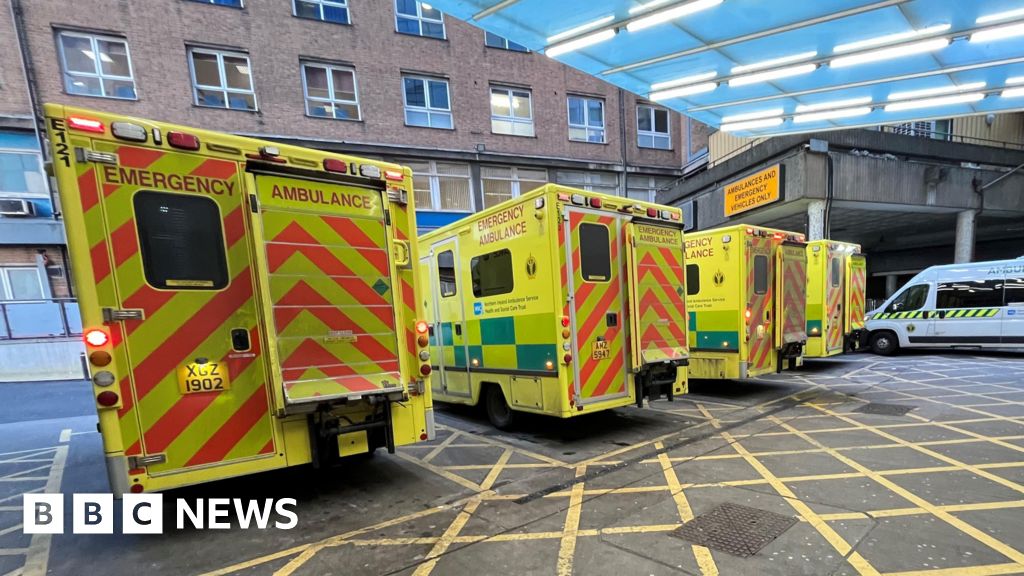ARTICLE AD BOX
By The Visual and Data Journalism Team
BBC News
There have been nearly 6.4 million confirmed cases of coronavirus in the UK and more than 131,000 people have died, government figures show.
However, these figures include only people who have died within 28 days of testing positive for coronavirus.
About 87% of people aged 16 and over in the UK have now had their first dose of a coronavirus vaccine and more than 75% have had their second.
Find out how the pandemic has affected your area and how it compares with the national average:
Slight increase in daily cases
After falling over recent weeks, the average number of daily confirmed cases is now showing signs of a small rise.
A further 36,572 confirmed cases in the UK were announced on Thursday.
The recent rise in cases has been driven by the Delta variant, which spreads faster than the previously most common Kent variant (now named Alpha).
Prime Minister Boris Johnson has lifted all legal restrictions in England but he has urged the public to remain cautious, saying the pandemic is not over.
Public Health England estimates that the UK vaccination programme had prevented more than 95,000 deaths and about 24 million infections.
It is thought the infection rate in the first peak of the virus in spring last year was much higher than was evident from the reported number of cases. Testing capacity was then too limited to detect the true number of daily cases.
The red areas on the map below show the places currently seeing the highest number of cases per 100,000 people.
You can use our postcode look-up to check what the rules are where you live.
Sorry, your browser cannot display this map
Vaccine rollout continuing
More than 47 million people, or about 87% of people aged 16 and over in the UK, have now received a first dose of a vaccine.
Some 41 million people, more than 75% of people aged 16 and over, have had a second.
In total, nearly 40 million people in England have had one vaccine dose.
In Scotland, more than four million people have had their first shot, while the figure is more than 2.3 million in Wales and nearly 1.3 million in Northern Ireland.
Everyone over the age of 18 across the UK can now book a vaccine.
The vaccine is also being offered to 16 and 17-year-olds in England, Wales and Northern Ireland. In Scotland, 16 and 17-year-olds can register their interest online.
Number of daily deaths low
There were 113 deaths within 28 days of a positive test reported on Thursday.
Of those deaths, 95 were in England, nine were in Northern Ireland, seven were in Scotland and two were in Wales.
Rules were amended last summer to include deaths in the coronavirus total only if they occurred within 28 days of a positive test. Previously in England, all deaths after a positive test were included.
England has seen the majority of UK deaths from Covid-19. Using the 28-day cut-off, there have been more than 115,000.
Hospital numbers level off
The most recent government figures show at least 6,379 people with coronavirus in hospital in the UK. A week earlier that figure was 5,969.
Although numbers climbed in recent weeks, they are far below the peak of nearly 40,000 people back in January.
Patient numbers are also broadly stable in the different nations and regions, as the chart below shows.
Patient groups and hospital staff have warned that lives are being put at risk by the huge backlog of treatment left by the pandemic.
Recent figures show that a record number of people - more than 5.45 million - are waiting for NHS hospital treatment in England.
Death toll could be above 150,000
When looking at the overall death toll from coronavirus, official figures count deaths in three different ways, each giving a slightly different number.
First, government figures count people who died within 28 days of testing positive for coronavirus - and that total is now more than 131,000.
According to the latest ONS figures, the UK has now seen almost 155,000 deaths - that's all those deaths where coronavirus was mentioned on the death certificate even if the person had not been tested for the virus.
The third measure counts all deaths over and above the usual number at the time of year - that figure was more than 119,000 to 6 August.
In total, there were 11,589 deaths registered in the week to 6 August, which was 12% above the five-year average.
Of the total deaths, 609 were related to coronavirus, 141 more than in the previous week.
There have now been more deaths involving Covid than "excess" deaths, which means non-Covid deaths must be below usual levels.
This could be because of a milder flu season - resulting from less travel and more social distancing - and because some people who might have died for other reasons had there been no pandemic, died of Covid.
What is the R number?
The "R number" is the average number of people an infected person will pass the disease on to.
If R is below one, then the number of people contracting the disease will fall; if it is above one, the number will grow.
The government has said in the past that the R number is one of the most important factors in making policy decisions.
The latest R number estimate for England is 0.8 to 1.0, while for Scotland it is 0.7 to 0.9, for Wales it is 0.8 to 1.1 and for Northern Ireland it is 1.0 to 1.2.

 3 years ago
151
3 years ago
151








 English (US) ·
English (US) ·